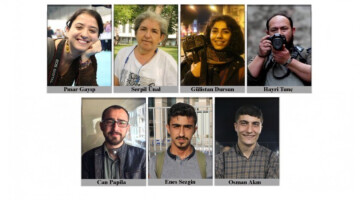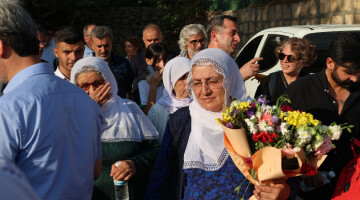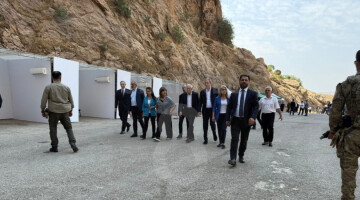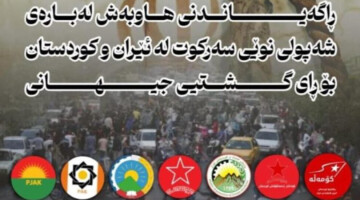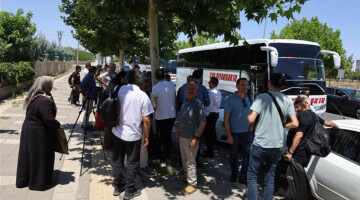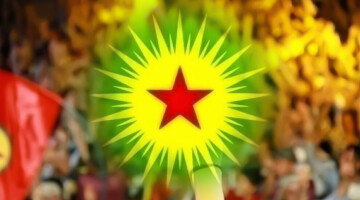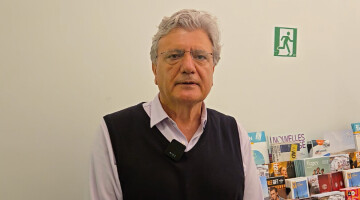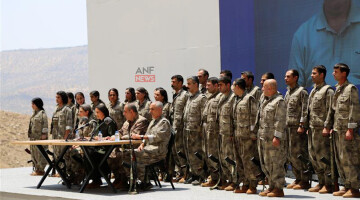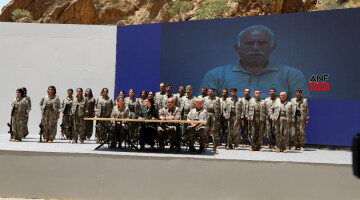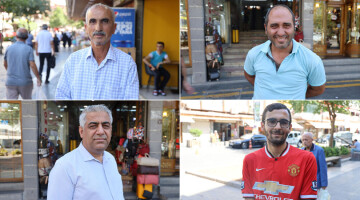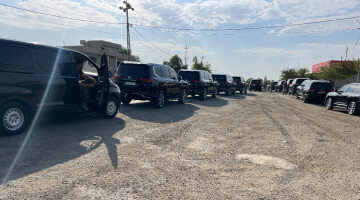As I reach the YPJ (Women's Defense Units) headquarters for a talk with YPJ fighters who took part in the operations against the ISIS gangs that massacred civilians on June 25 which left 233 people martyred, mostly women and children, and 273 wounded, at the door, they tell me that I need to wait, to see if they are appropriate for an interview at that moment. In the meantime, a female fighter responsible for security at the door asks me to sit down.
'WE ARE COMBATANTS, HEVAL...'
When I ask her name, she answers 'Laleşin'. In silence and a faraway look, she carries a deep sadness on the face. Abstentiously, I ask her why she is lost in thought and gazes upon. She starts telling, as if we are continuing a talk we had formerly laid over. "We are combatants, heval. We are defending our land and revolution, we may fall a martyr."
As she speaks, I try to understand why she is telling these things. She adds; "However, the death of civilians is very heavy. We should have protected them." Now I understand Laleşin who speaks most sincerely, as if she took her heart in her hand as she voices her feelings. The pain of the deaths she feels not only in her heart, but also in her body and even in gestures. It is not being difficult to understand this.
For the first time do I feel the impression of the massacre as I listen to Laleşin.
"IT IS NOT ONLY THAT THE PEOPLE DIED IN KOBANÊ"
"I woke up with a Rojbaş (Good Morning), to immediately hear gunshots, and to learn that gangs had entered Kobanê", she tells. Laleşin takes part in the first group of YPG/YPJ fighters that made the first intervention to the murderer gangs. Her commanders assign her for the removal of the civilians' bodies, and protection of other civilians.
"What happened in Halabja was a great massacre that claimed the lives of thousands of women and children", she says, and tells that it is not only that people died in Kobanê, but also a pain of witnessing the death of their closest friends and relatives.
"Isn't this too heavy, heval?", she asks, to which I cannot give an answer. As Laleşin speaks, I remember the French writer Jean Genet's book “Four Hours in Shatila” ["Quatre heures à Chatila"] in which he tells about the massacres that took place in the Palestinian camps of Sabra and Shatila in Beirut, Lebanon, in 1982, and tells that "everyone dies alone".
Yet, as I listen to Laleşin, I understand that "Nobody dies alone in Kobanê", and that "They just don't die". Who could ever claim that a mother who lost her life with the pain of her breastfed baby died alone, and just died?
'THEY SPRAYED A CHILD HIDING UNDER KITCHEN COUNTER WITH GUNFIRE'
The traumatic details of the massacre come out as Laleşin keeps telling, that a 3-year-old child hid himself under the kitchen counter during the attack, and that ISIS savages sprayed him with gunfire soon upon finding him. She tells about the murder of his mother and other sibling whose bodies were riddled with holes. Her eyes fill with tears as she keeps telling, and asks; "Why did the gangs not target us? They should have clashed with us. What did they want from our people and children? She also reacts to the Turkish state which -she says- was a party to this massacre.
'I JOINED YPJ TO HINDER SUCH MASSACRES...'
Laleşin is from Kobanê. She tells that she grew up in the streets where the massacre took place, playing together with many who were killed in the massacre. "I joined YPJ in order that no massacres be perpetrated on these streets but I failed to hinder it. This is too heavy and difficult to overcome."
'PROTECTING PEOPLE IS OUR CLAIM TO EXISTENCE'
Laleşin, who lost many friends of hers in September when the major attack of ISIS gangs on Kobanê was conducted, tells the followings; "We are ready anyway to make sure that our people do not die, and that our lands and people become free. I can make of death when a fighter is martyred. I myself sustained an injury also, and I may fall a martyr. This is not a problem for us. But, the people must live and lead a free life, they mustn't die. This is our claim to existence, heval"
'ı WONDER WHAT LEADER APO WILL SAY'
Laleşin wonders what Kurdish people's leader Abdullah Öcalan will say regarding the massacre. "I know he will feel a deep sadness when he hears about it. It is him who taught us to be deeply bound up with the people, to protect them, and to fight for their freedom", she says.
Laleşin finally adds that; "We will never allow such a massacre from now on. We will take all the precautions, no matter what it may cost. This people will not suffer another massacre, even if only a single YPG/YPJ fighter is left. Nobody will ever be able to lay hands on this people."

